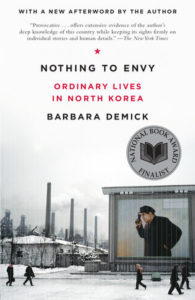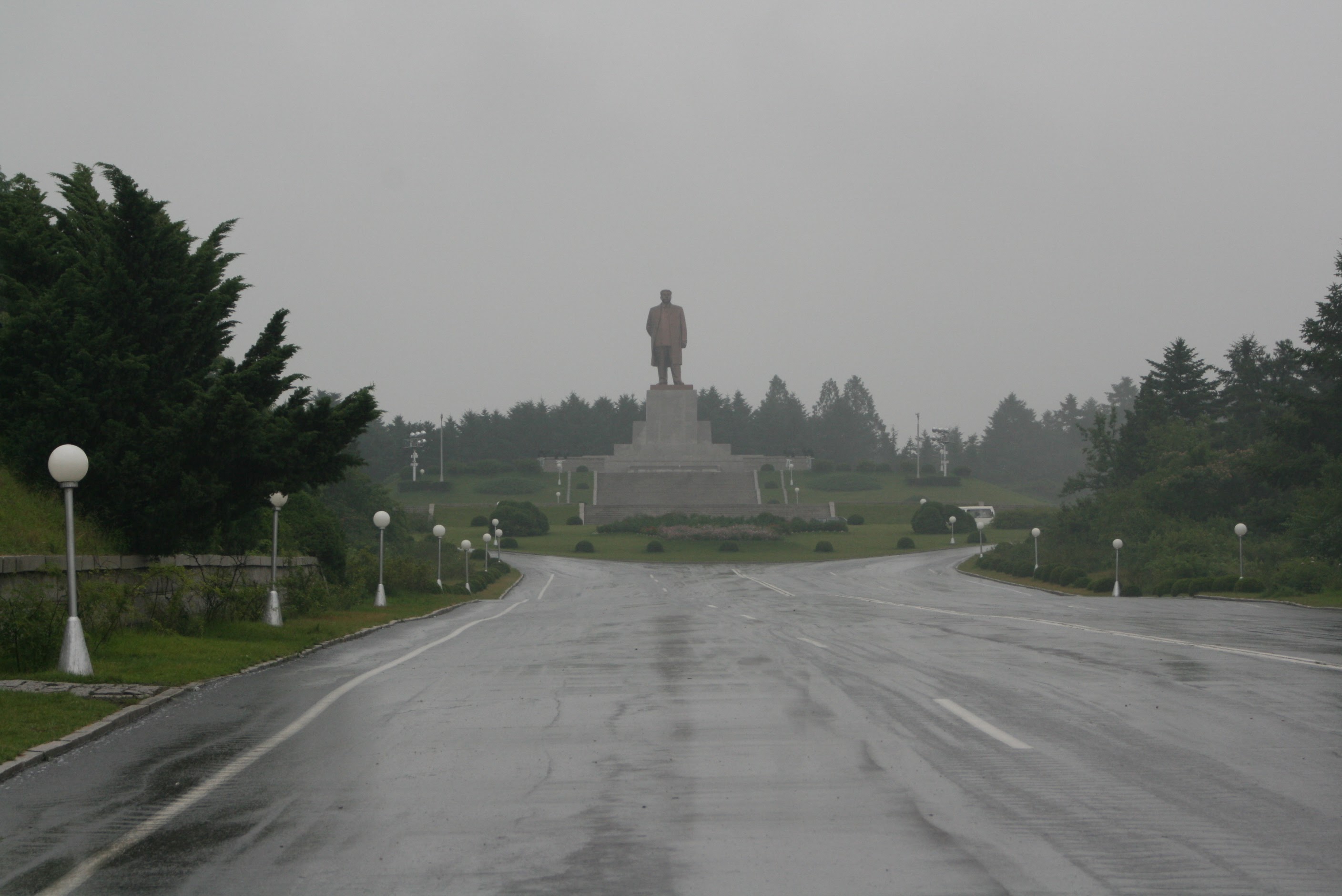We were told not to take pictures out of the bus when we crossed the Demilitarized Zone (DMZ) separating North and South Korea. The border guards were thin and looked like they couldn’t carry their machine guns at the border. We moved through the downtown of Kaesong (개성). The streets were bare of people. The apartment buildings were filled looking out the windowless apartments. Only people from the ruling Workers Party could be on the streets. We could see by the pin the older ones had over their hearts. The children wore bright red scarfs around their necks.
It was almost ten years ago but still, remember it. Most of the books or articles about the North talk about the politics, the leaders, and the history. None of those books have brought a fuller understanding like Nothing To Envy: Real Lives In North Korea by Barbara Demick. It is about life, love, hunger, and escape. Each theme told through six ordinary people from the city of Chongjin (청진), near the borders of Russia and China.
What is surprising is love. It is one of the main strands of the book. It is the story of a young girl, Mi-ran, who is born from “bad blood” because her father was a South Korean Prisoner of War. The North categorizes people based on their trust and service to the Party. If one is seen as untrustworthy because of what their parents or grandparents have done in the past, they are on a lower rung in society. It means they are unable to get into university or live in a better house or get more food.
She falls in love with a Japanese-Korean boy whose family comes back to the North. His name is Ju-Sang. He has the “proper” family backing with lots of money sent from his relatives in Japan. Part of the money goes to the government. He moves to Pyongyang to study and be part of the main or ‘core’ class. They “date” for almost ten years but never kiss and only hold hands. The book covers the different paths they take from some food to none. In the end, they reunite but in reverse roles in the South.

Ms. Song represents those conditioned into believing the only salvation is through the Kim Dynasty. She is lucky to have been born into a good family and thinks the communist ideals of North Korea are the best way. She is the “true believer” throughout the book. When the famine is causing the deaths of her friends, neighbors and her husband and son, she still believes in Kim Il-Sung and Kim Jong-il. She refuses to try and make money when everyone else is doing it since it is against the Party. When Ms. Song is lured over to China by her daughter, she finally realizes how much of a lie things have been in the North.
There are other characters like Dr. Kim Ji-Eun who believes because the “state” provides her with her education and her livelihood. Her father believed in the party, but when he passes, he lets her know of her family in China and tries to encourage her to escape. She finally does after realizing she can no longer help her patients.
There is also a child, Kim Hyuck, who was given over to an orphanage because his father couldn’t take care of him as a child. He leaves the orphanage because they too have run out of food. He survives by stealing and selling his goods on both sides of the Chinese-North Korean border as a way to live. He is caught, sent to a detention center. These six characters help to give a clearer understanding of North Korea.
The last part of the book focuses on the ways they escaped. The author interviewed all the characters in South Korea when she was the bureau chief for the Los Angeles Times. She describes how they got to the south in different ways. For those with money, there are the human smugglers to guide North Koreans into China and coach them into South Korea. For the poor, there is a longer route going across China and Mongolia and then to South Korea. The final leg to the south comes with the help of charitable organizations. There is also the integration or deprogramming period to live in South Korea. It is hard for a lot of them who don’t have a connection with the South.
My trip to North Korea, almost ten years ago, was only a few hours. At the time, I couldn’t imagine what life is like there. Through this book, there is more understanding.
